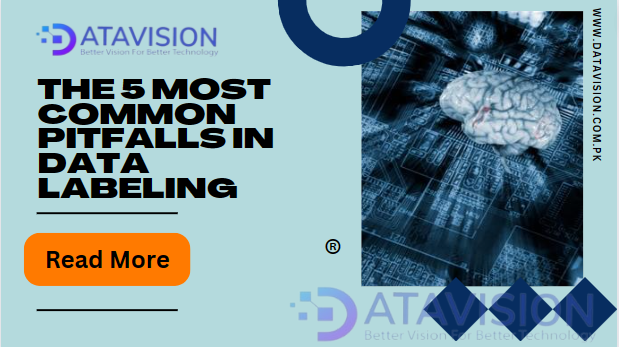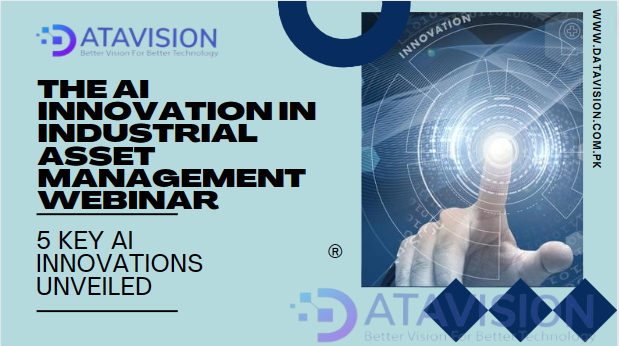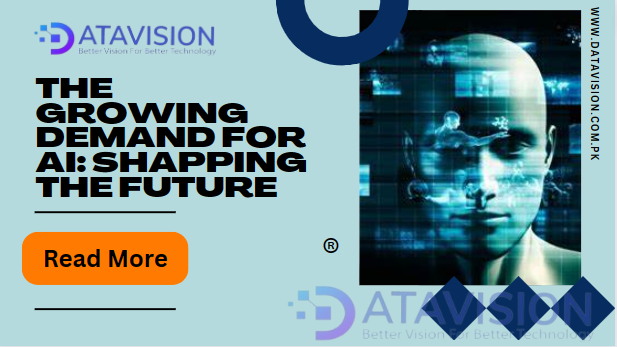Data Vision private limited is at the forefront of revolutionizing the AI industry. We are committed to empowering artificial intelligence with high-quality, accurately labeled data that fuels the development of cutting-edge AI models. With a team of skilled annotators, domain experts, and state-of-the-art annotation tools, we are dedicated to providing diverse and contextually relevant annotated datasets that cater to the evolving needs of AI applications across various sectors.
The Rise of Data Vision
In the ever-evolving landscape of AI, Data Vision has emerged as true pioneers, revolutionizing the AI world through innovative and transformative services. With an unwavering commitment to excellence, Data Vision has harnessed the power of data annotation to create a profound impact on AI applications. By meticulously curating and labeling vast amounts of complex data, including images, videos, and text, it has provided AI models with the critical knowledge required to understand and interpret the world around us. The precision and accuracy of our annotations have paved the way for breakthroughs in various industries, from healthcare and finance to transportation and robotics. Through our relentless pursuit of quality, Data Vision has elevated the capabilities of AI models, making them more reliable, efficient, and capable of tackling real-world challenges. As trailblazers in the AI revolution, our company continues to shape the future, unlocking unprecedented possibilities and driving advancements that are reshaping the way we live, work, and interact with technology.
Applications of Data Vision
- Image Annotation: Data Vision provides annotation. It involves the task of adding metadata or labels to images, making them understandable and usable by algorithms for various applications. This process is essential for training and improving the accuracy of image recognition systems, object detection, semantic segmentation, and other computer vision tasks.
- Facial Recognition: The ability to recognize and authenticate individuals based on facial features has revolutionized security systems, unlocking our devices, and enhancing user experience.
- Visual Search: Data Vision allows machines to perform visual searches on vast image databases, making it easier for users to find similar products, artwork, or even identify landmarks and locations.
- Surveillance and Security: AI-powered video analysis can monitor and detect suspicious activities, assisting law enforcement agencies in maintaining public safety.
- Augmented Reality (AR) and Virtual Reality (VR):
Augmented Reality (AR) and Virtual Reality (VR)these cutting-edge technologies transform how to perceive and interact with the digital and physical worlds, creating immersive and interactive experiences for users. Data Vision enhances capabilities and delivers compelling user experiences.
Challenges in Data Vision
Despite significant progress, data vision encounters some challenges:
- Data Quality and Diversity: To ensure high-quality and diverse data annotations, Data Vision implements several strategies and practices. Data Vision develops detailed annotation guidelines for their annotators.
- Interpreting Context: Contextual understanding ensures that annotations accurately represent the intended meaning and relevance of visual elements within the given context.
- Robustness to Variability: Real-world visual data can vary greatly in terms of lighting, angles, and occlusions. Ensuring models remain robust in the face of such variations is crucial.
- Ethical Concerns: Facial recognition and surveillance technologies raise privacy and ethical concerns. Striking a balance between innovation and responsible use is vital.
The Future of Data Vision
The future of Data Vision is promising and highly relevant in the evolving landscape of artificial intelligence and machine learning. As AI technologies continue to advance, the demand for high-quality annotated data is growing exponentially. Our company plays a role in providing the labeled datasets necessary to train and improve AI models, making them more accurate, efficient, and adaptable. Here are some key aspects that shape the future of Data Vision:
1. Increased Demand for Diverse and Specialized Data: As AI applications diversify across industries, the need for annotated data covering various domains and niche areas will surge. Our company will be required to cater to specialized tasks, such as medical imaging, autonomous vehicles, agriculture, finance, and more.
2. Advancements in Annotation Tools and Automation: To keep up with the growing demand for annotated data, our company will leverage advancements in annotation tools and automation. These technologies will streamline the annotation process, reduce turnaround time, and improve efficiency without compromising on data quality.
3. Emphasis on Data Privacy and Ethical Considerations: As data privacy regulations become more stringent, Our company will prioritize ethical data handling practices. They will adopt secure data storage and processing methods, ensuring that sensitive information is properly anonymized and protected.
4. Combining Multiple Data Modalities: in future our company will deal with diverse data types. Combining and annotating these different modalities will be crucial to enable more advanced AI applications.
5. Integration of AI into Annotation Process: our company will leverage AI and machine learning technologies themselves to enhance the annotation process. AI-assisted annotation, pre-annotation, and active learning techniques will increase annotation accuracy and speed.
6. Real-Time and Dynamic Annotation Services: With applications like augmented reality and autonomous systems requiring real-time data feedback, our company will offer dynamic annotation services that can adapt and update annotations on-the-fly.
7. Continuous Learning and Improvement: Our company will establish feedback loops with clients, enabling continuous learning and improvement. These interactions will lead to better understanding of client needs, resulting in more tailored and accurate annotations.
8. Global Collaboration and Crowd-Sourcing: Data Vision will tap into a global workforce, utilizing crowd-sourcing and distributed annotation platforms to handle large-scale projects efficiently.
9. Focus on Explainable AI and Trustworthiness: As AI becomes more pervasive, the need for explainable AI models will grow. Our company will emphasize producing datasets that contribute to the interpretability and transparency of AI algorithms.
10. AI Bias Mitigation: Addressing AI bias will be a key focus for Data Vision we will implement strategies to identify and mitigate bias in datasets, promoting fairness and inclusivity in AI applications.
Conclusion
Data Vision private limited play a pivotal role in transforming raw data into valuable labeled datasets that power various AI applications across diverse industries. Through our meticulous annotation processes, we ensure data quality, diversity, and context, which are essential for the success of computer vision, natural language processing, and other AI-driven tasks. As AI applications continue to expand into new domains, our company will rise to the challenge by employing innovative annotation tools, automation, and AI-assisted processes to meet the evolving needs of clients. data annotation companies will maintain the highest standards of data handling to ensure compliance with regulations and protect sensitive information. Our company will remain indispensable, driving innovation and pushing the boundaries of what AI can achieve.




